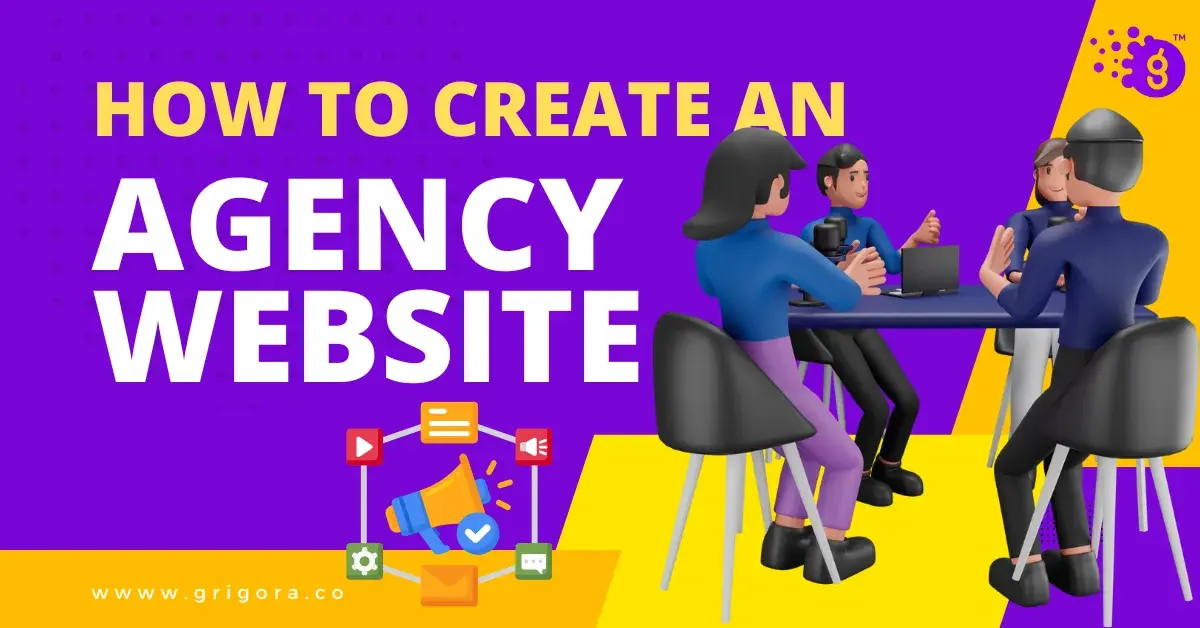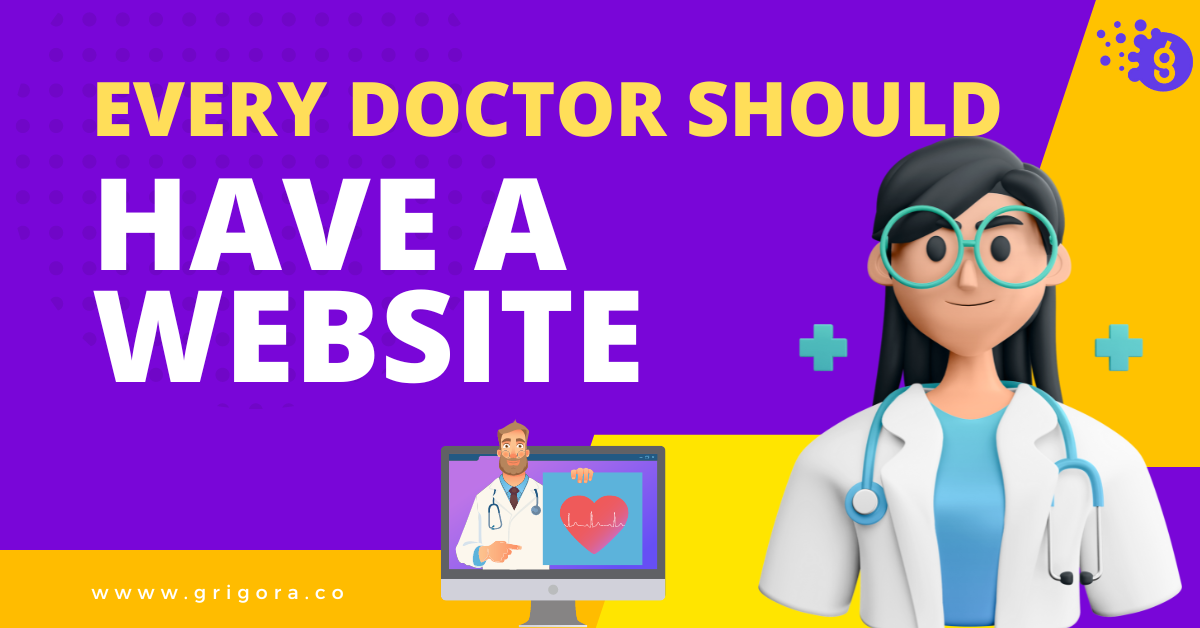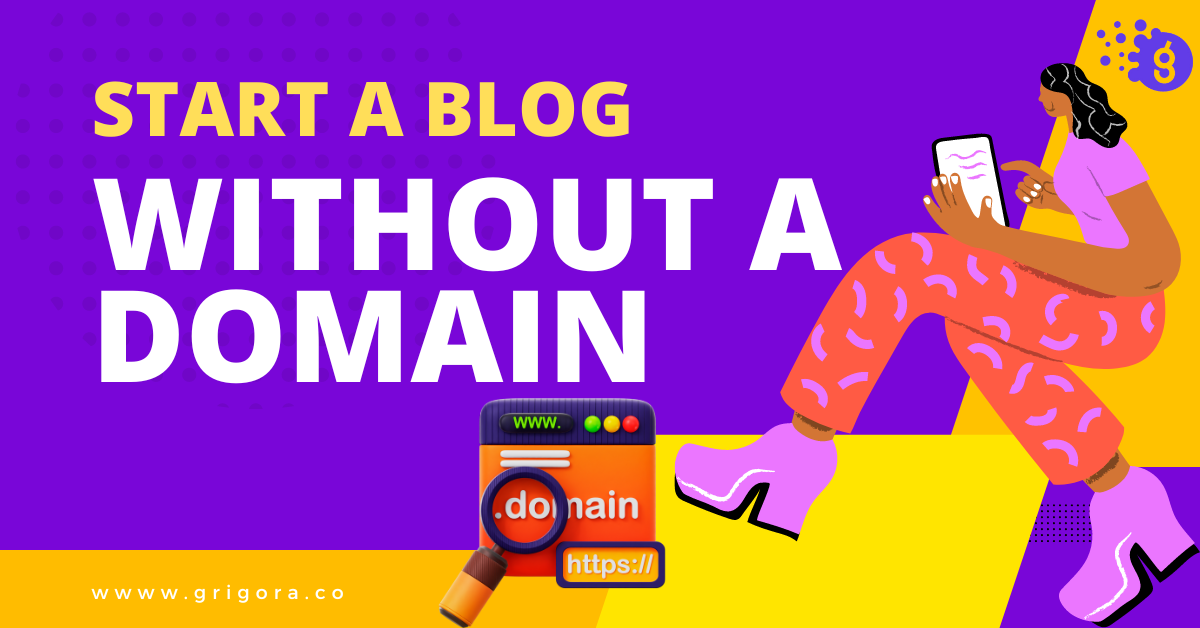Introduction
Understanding the Importance of an Agency Website
In today’s digital age, having an online presence is vital for any business, and agencies are no exception. An agency website serves as a digital storefront, showcasing the services, team, and values that set the agency apart. It’s more than just a marketing tool; it’s a platform that can drive leads, foster client relationships, and build credibility in the industry.
Target Audience and Purpose
Are you an agency owner, marketing professional, web developer, or someone interested in creating or improving an agency website? This guide is for you! The purpose here is to provide a comprehensive roadmap for building an effective agency website that resonates with potential clients and supports business growth.
Overview of the Guide
Ready to dive into the world of agency websites? This guide will take you through the entire process, from understanding the goals and choosing the right platform to designing, promoting, and monetizing the site. It will also explore legal considerations and the utilization of specific tools and plugins. Whether you’re starting from scratch or looking to enhance an existing site, this guide offers valuable insights and practical steps to achieve success online.
Identifying Your Agency Website Goals

Defining the Services to Highlight
What makes your agency unique? Identifying and defining the specific services you offer is the first step in creating a website that truly represents your agency. Whether it’s marketing, design, development, or a combination of these, clearly highlighting your services will help potential clients understand what you can do for them.
Understanding Your Target Clients
Who are you trying to reach? Understanding your target clients is essential in crafting a website that speaks to their needs and interests. Are you targeting small businesses, large corporations, specific industries, or a particular geographic location? Knowing your audience will guide your content, design, and overall strategy.
Setting Success Metrics
How will you measure success? Setting clear and measurable success metrics is crucial for evaluating the effectiveness of your agency website. Whether it’s lead generation, client engagement, conversion rates, or something else, defining what success looks like will help you track progress and make informed decisions for continuous improvement.
Choosing the Right Platform
Comparing Website Platforms
Which platform is right for you? There are various website platforms available, each with its own features and benefits. From Grigora to WordPress or a custom-built solution, comparing the options will help you choose the one that aligns with your agency’s needs and goals. Consider factors like customization, scalability, cost, and support.
Importance of Mobile Responsiveness
Is your website mobile-friendly? In today’s digital age, a significant portion of web traffic comes from mobile devices. Ensuring that your agency website is responsive and looks great on all devices is not just a nice-to-have; it’s a must. Mobile responsiveness enhances user experience and can positively impact your search engine rankings.
SEO Considerations for Agency Services
How will people find your website? Search Engine Optimization (SEO) is vital for any agency website. Optimizing your site for search engines ensures that potential clients can find you when they search for the services you offer. From keyword research to on-page optimization, meta tags, and backlinks, SEO considerations should be an integral part of your platform selection and overall website strategy.
Designing Your Agency Website
Selecting a Theme that Reflects Agency Branding
What does your theme say about your agency? The theme you choose should resonate with your agency’s brand identity. Selecting a theme that aligns with your brand’s colors, fonts, and overall aesthetic will create a cohesive and professional appearance. Whether you opt for a pre-designed theme or a custom-built one, make sure it reflects your agency’s personality and values.
Customizing the Layout for Easy Navigation
How easy is it for visitors to navigate your site? The layout of your agency website should be intuitive and user-friendly. Customizing the layout to guide visitors through your services, portfolio, and contact information can enhance user experience and conversion rates. Consider employing clear call-to-action buttons, well-organized menus, and a logical flow that leads visitors to the desired action.
Integrating Agency-related Visuals
What visuals represent your agency? High-quality, relevant visuals can significantly enhance your website’s appeal. Integrating images, videos, or graphics that relate to your agency’s services, culture, or success stories can make your site more engaging and relatable. Whether it’s showcasing your team, highlighting client testimonials, or featuring your work, choose visuals that tell your agency’s story and connect with your target audience.
Content Creation
Highlighting Your Agency Services
What services does your agency offer? This is a vital part of your website where you detail the specific services your agency provides. From marketing to design, development, or consulting, clearly outlining what you offer helps potential clients understand how you can assist them. Include benefits, features, and examples of previous work to build trust and showcase your expertise.
Creating Engaging Content for Clients
How do you speak to your clients through your website? The content on your agency website should be tailored to resonate with your target clients. Engaging content that speaks directly to their needs, challenges, and goals will make your website more compelling. Use a conversational tone, include case studies, and provide actionable insights to connect with your audience and demonstrate your understanding of their industry.
Utilizing Industry Terminology
Are you speaking your clients’ language? Utilizing industry-specific terminology can enhance your credibility and show that you are well-versed in your clients’ field. However, it’s essential to strike a balance. Too much jargon can alienate those not familiar with the terms, while too little may make you seem inexperienced. Use terminology that reflects your expertise but remains accessible to your diverse client base.
Promoting Your Agency Website
Social Media Strategies for Agency Services
How do you leverage social media to promote your agency? Social media platforms are powerful tools to increase visibility and engage with potential clients. Outline your services, share success stories, and provide valuable insights through regular posts. Utilize paid advertising and influencer collaborations to reach a broader audience. Remember, consistency and authenticity are key to building a loyal following.
Collaborating with Brands
Who are your partners in success? Collaborating with other brands can expand your reach and enhance your credibility. Whether it’s a joint marketing campaign, guest blogging, or co-hosting webinars, strategic partnerships can drive traffic to your website and generate leads. Highlight these collaborations on your website to showcase your network and industry influence.
Community Engagement and Local SEO
Are you connected with your local community? Engaging with your local community both online and offline can boost your agency’s reputation and visibility. Participate in local events, sponsor community activities, and optimize your website for local search (Local SEO). These efforts not only promote your agency but also build meaningful relationships with potential local clients. It’s about being part of the community, not just selling to it.
Monetizing Opportunities
Online Consultations
Do you offer expert advice? Online consultations can be a significant revenue stream for your agency. By providing personalized guidance and solutions, you can attract clients looking for specialized services. Utilize video conferencing tools and secure payment gateways to facilitate these sessions. Offering free initial consultations can also be a great way to attract potential clients.
Selling Products or Services
What unique products or services do you offer? Your agency website can be a platform for selling exclusive products or specialized services. Whether it’s a unique marketing tool, a subscription to exclusive content, or a specialized training program, highlighting these offerings on your website can generate additional revenue. Make sure to provide clear descriptions, pricing, and easy purchase options.
Sponsored Content Opportunities with Brands
How do you leverage your influence? If your agency has a strong online presence, you may attract brands looking for sponsored content opportunities. This can include blog posts, webinars, podcasts, or social media posts that promote a brand’s products or services. Clearly outline the terms and benefits of sponsorship on your website, and ensure that all sponsored content is clearly marked and complies with legal requirements.
Analyzing and Improving
Tracking Website Performance
How well is your website performing? Utilizing analytics tools can provide insights into visitor behavior, traffic sources, and conversion rates. Understanding these metrics is vital for making informed decisions and optimizing your website for success. Regularly monitoring and analyzing these data points will help you identify areas for improvement and measure the effectiveness of changes.
Engaging with Clients and Collecting Feedback
What do your clients think? Engaging with your clients and collecting feedback is essential for continuous improvement. Implement feedback forms, surveys, or direct communication channels to understand your clients’ needs and preferences. Responding to feedback and making necessary adjustments shows that you value client input and are committed to providing the best possible service.
Continuous Learning and Improvement
How do you stay ahead of the curve? The digital landscape is constantly evolving, and your agency website must adapt to stay relevant. This involves keeping up with industry trends, technological advancements, and changes in consumer behavior. Regularly updating content, improving design, and enhancing functionality ensures that your website remains an effective tool for achieving your agency’s goals. Committing to continuous learning and improvement is key to long-term success.
Legal and Ethical Considerations
Compliance with Laws and Regulations
Is your website legally compliant? Creating and operating an agency website involves adhering to various laws and regulations. This includes copyright laws, accessibility standards, and industry-specific regulations. Ensuring compliance is not only a legal requirement but also builds trust with clients and protects your agency from potential legal issues. Consult with a legal professional to understand the specific legal obligations relevant to your agency’s location and industry.
Privacy Policies and Client Confidentiality
How do you protect client information? Privacy and confidentiality are crucial considerations in the digital age. Your agency website likely collects and stores personal information from clients and visitors. Implementing robust security measures and clear privacy policies is essential to protect this sensitive information. Clearly communicate how information is collected, used, and stored, and ensure that these practices are in compliance with privacy laws. Upholding client confidentiality reinforces your agency’s integrity and strengthens client trust.
Utilizing Tools and Plugins
Introduction to Essential Tools for Agency Websites
What tools can elevate your agency website? The digital landscape offers a plethora of tools and plugins that can enhance the functionality and appearance of your agency website. From SEO optimization tools to social media integration plugins, understanding what’s available and how to use them is key. This section will introduce essential tools that cater to the specific needs of agency websites, helping you create a more dynamic and user-friendly experience.
How to Integrate Various Plugins
Want to add more features to your website? Plugins are software components that add specific capabilities to an existing computer program. By enabling or integrating various plugins, you can customize your agency website to perform functions that cater to your client’s needs and preferences. This part will guide you through the selection, installation, and management of plugins that align with your agency’s goals and services.
Success Stories of Agency Websites Using Tools
How have others succeeded with tools and plugins? Learning from real-world examples can provide valuable insights and inspiration. This section will highlight the success stories of agency websites that have effectively utilized tools and plugins to enhance their online presence. These case studies will demonstrate how the right combination of tools can lead to increased engagement, efficiency, and profitability.
FAQs
What are the costs involved in creating an agency website?
Creating an agency website can vary in cost depending on the complexity, design, features, and platform chosen. Costs may include domain registration, hosting, theme purchase, plugin subscriptions, and professional services like design or SEO optimization. This section will provide a general breakdown of potential costs and tips for budgeting.
How can I make my agency website user-friendly for clients?
User-friendliness is key to client satisfaction. This involves intuitive navigation, clear content, responsive design, and accessible features. Here, we’ll explore best practices for creating a client-centric experience on your agency website, including design tips, content strategies, and accessibility considerations.
What are the best tools for agency website SEO?
SEO is vital for increasing visibility and attracting potential clients. This section will highlight the top tools specifically suited for agency website SEO, including keyword research tools, analytics platforms, and on-page optimization plugins. Practical guidance on how to use these tools will also be provided.
How can I integrate online appointment scheduling on my agency website?
Online appointment scheduling can enhance client convenience and streamline your booking process. This FAQ will guide you through the selection of scheduling tools, the integration process, and best practices for creating a smooth booking experience for both your clients and your team.
Can I customize my agency website according to my branding?
Absolutely! Customizing your agency website to reflect your branding is essential for a cohesive identity. This section will explain how to align your website’s design, color scheme, typography, and visuals with your brand guidelines using themes, customization options, and design principles. Whether you’re starting from scratch or tweaking an existing site, you’ll find actionable insights to make your agency website uniquely yours.
Summary
What have we learned? Building an agency website is a comprehensive process that involves clear goal-setting, thoughtful design, engaging content creation, strategic promotion, ethical considerations, and continuous improvement. Utilizing the right tools and platforms, especially those that align with your agency’s specific needs, can make the process more efficient and effective. This summary will recap the essential points and lessons learned throughout the guide, providing a concise overview for easy reference.
Next Steps in Your Agency Website Journey
What’s next? Your agency website is a living entity that requires ongoing attention and development. Whether you’re just starting out or looking to enhance an existing site, this guide has provided a roadmap to success. The next steps involve putting these strategies into action, monitoring results, and adapting as needed. This section will outline the immediate actions you can take to begin or continue your agency website journey, ensuring that your site reflects your brand, reaches your target audience, and achieves your business goals.



